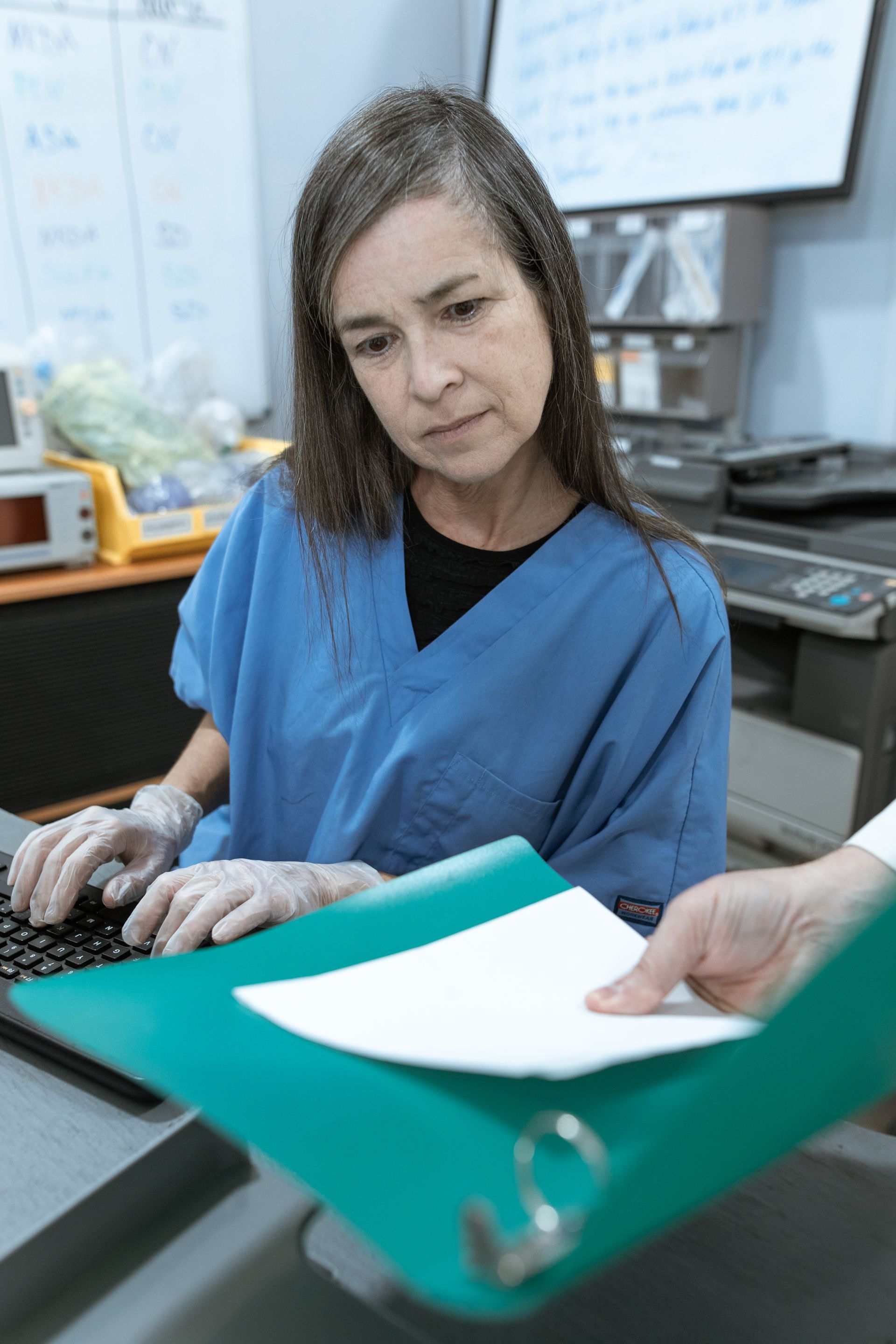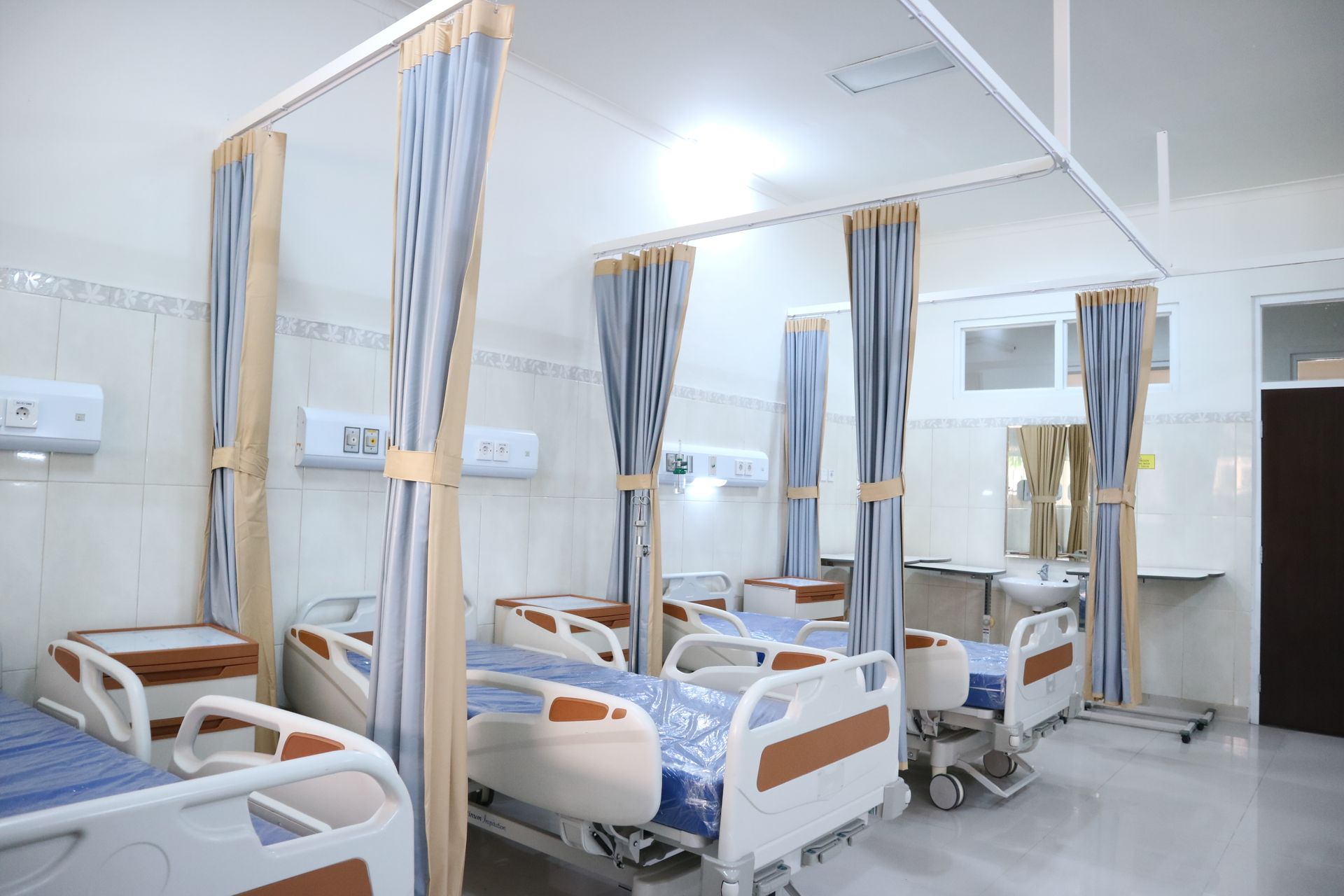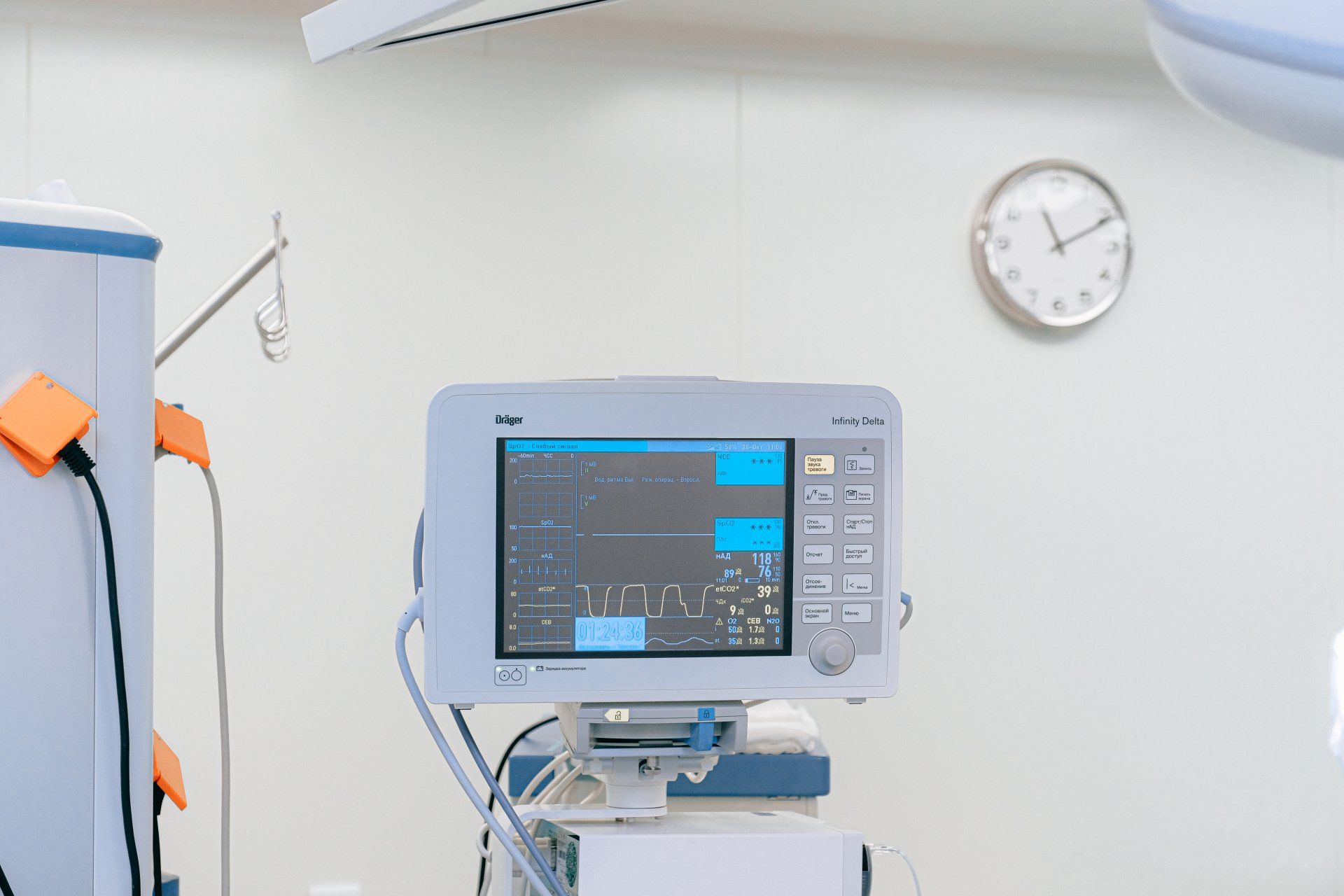Blog
m2-ICU Blog

01 Jun, 2023
Dear Readers, Welcome back to our m2-ICU newsletter. Today, we are addressing a topic that is generating considerable discussion in the healthcare industry: alarm fatigue in nursing practice. Meredith Mealer, Associate Professor at the University of Colorado School of Medicine, raises awareness about this pressing issue in an article from 2016. Alarm fatigue is a pervasive and disruptive phenomenon. In certain intensive care units, patients are exposed to over 45 alarms per hour. It is no surprise, amidst this continuous noise, that distinguishing between urgent and false alarms becomes an enormous challenge. A study published in Healthcare Informatics Research revealed that an astonishing 68% of these alarms were false, resulting in an astounding 1,394 false alarms each day. The article suggests that healthcare providers should take tangible measures to reduce the occurrence of alarm fatigue. These measures include establishing an alarm management team, implementing a timeline for reducing noise, and educating staff on protocols for modifying default settings on monitors. However, at m2-ICU, we believe that the solution lies not only in improved training but also in better tools. Our innovative solution aims to minimize noise and maximize efficiency. Our user-centric platform is being designed to alleviate the cognitive burden on healthcare professionals, enabling them to concentrate more on what truly matters - patient care. In conclusion, alarm fatigue is a significant issue that requires urgent attention. At m2-ICU, we are dedicated to creating a more harmonious ICU environment, where the primary focus is on patient care rather than managing alarms. Stay tuned for further updates on how m2-ICU is transforming ICU care and empowering your healthcare journey. Best, –Asclepio Team References: Cho, O. S., Kim, H., Lee, Y. H., & Cho, I. (2016). Clinical Alarms in Intensive Care Units: Perceived Obstacles of Alarm Management and Alarm Fatigue in Nurses . Healthcare Informatics Research, 22(1), 46. Mealer, Meredith. “Burnout Syndrome in the Intensive Care Unit. Future Directions for Research.” Annals of the American Thoracic Society vol. 13,7 (2016): 997-8. doi:10.1513/AnnalsATS.201604-280ED

By looka_production_126305417
•
01 Jun, 2023
Dear Readers, Welcome back to our newsletter! Today, we're going to explore a topic that's been making waves in the healthcare industry - the cost-effectiveness of telehealth monitoring in ICU settings. Imagine this: You're a healthcare professional in an ICU. The ward is bustling with activity, alarms are going off, and you're trying to keep track of multiple patients' vital signs. It's a high-stress environment, and the stakes are high. Now, imagine if there was a way to streamline this process, to make it more efficient and less stressful. Sounds like a dream, right? Well, this is where telehealth comes into play. According to a study published in the Canadian Journal of General Internal Medicine, the implementation of telehealth monitoring systems, such as remote oximetry monitoring combined with virtual clinics, has shown significant financial advantages. The study found that these innovative models of care can be rapidly deployed at low costs, resulting in major savings for the hospital. Now, let's dive into the numbers. The study analyzed the financial implications of a program called LUC3, which combines remote oximetry monitoring with virtual clinics. The results were astounding. The program was developed as a patient-centered approach to provide timely medical care to isolated patients diagnosed with COVID-19 in the community. It demonstrated that virtual clinics can be rapidly deployed at low costs, with major savings to the hospital. This is where our solution, m2-ICU, comes into the picture. At Asclep.io, we're developing m2-ICU, a user-centric software that gathers data from ICU monitoring medical devices and shares them anytime, anywhere, and on any mobile device of the healthcare personnel. The users can customize the interface according to their needs, setting specific alarm thresholds and visualizing the parameters they deem most important. By integrating m2-ICU into ICU settings, we aim to tackle the issues highlighted in the study, such as the lack of data integration and the difficulty in monitoring numerical data trends. Our solution is designed to be user-friendly, reducing the cognitive load on healthcare personnel and allowing them to focus on what truly matters - the patients. In conclusion, the future of ICU care lies in innovative solutions like telehealth and m2-ICU. By leveraging technology, we can make ICU care more efficient, cost-effective, and patient-centric. Remember, we are "Empowering Your Health Journey: m2-ICU, Your Priority, Our Future!” Stay tuned for more updates on how m2-ICU is transforming ICU care. Best, –Asclepio Team Reference:

By looka_production_126305417
•
01 Jun, 2023
Dear Readers, We hope this newsletter finds you in good health and high spirits. Today, we bring you exciting news from the world of telemedicine, specifically focusing on the Intensive Care Unit (ICU). Imagine this: You're a healthcare professional in an ICU. The ward is bustling with activity, alarms are going off, and you're trying to keep track of multiple patients' vital signs. It's a high-stress environment, and the stakes are high. Now, imagine if there was a way to streamline this process, to make it more efficient and less stressful. Sounds like a dream, right? Well, this is where telehealth comes into play. According to a study published in the Canadian Journal of General Internal Medicine by Taro Watanabe et al., the implementation of telehealth monitoring systems, such as remote oximetry monitoring combined with virtual clinics, has shown significant financial advantages. The study found that these innovative models of care can be rapidly deployed at low costs, resulting in major savings for the hospital. Now, let's dive into the numbers. The study analyzed the financial implications of a program called LUC3, which combines remote oximetry monitoring with virtual clinics. The results were astounding. The program was developed as a patient-centered approach to provide timely medical care to isolated patients diagnosed with COVID-19 in the community. It demonstrated that virtual clinics can be rapidly deployed at low costs, with major savings to the hospital. This is where our solution, m2-ICU, comes into the picture. At Asclep.io, we're developing m2-ICU, a user-centric software that gathers data from ICU monitoring medical devices and shares them anytime, anywhere, and on any mobile device of the healthcare personnel. The users can customize the interface according to their needs, setting specific alarm thresholds and visualizing the parameters they deem most important. By integrating m2-ICU into ICU settings, we aim to tackle the issues highlighted in the study, such as the lack of data integration and the difficulty in monitoring numerical data trends. Our solution is designed to be user-friendly, reducing the cognitive load on healthcare personnel and allowing them to focus on what truly matters - the patients. In conclusion, the future of ICU care lies in innovative solutions like telehealth and m2-ICU. By leveraging technology, we can make ICU care more efficient, cost-effective, and patient-centric. Remember, we are "Empowering Your Health Journey: m2-ICU, Your Priority, Our Future!” Stay tuned for more updates on how m2-ICU is transforming ICU care. Best, –Asclepio Team

18 May, 2023
Dear readers, Welcome to our journey into the world of Intensive Care Units (ICUs)! Today, we're pulling back the curtain on a silent yet potentially deadly issue afflicting every ICU - 'alarm fatigue.' This term might sound unfamiliar, but its implications are far-reaching and deeply concerning. Imagine being in a room filled with incessant beeping, each beep representing a life-threatening situation for the patient in the room. Now, imagine the beeping becoming a constant hum in the background, almost like white noise. This is the reality for many healthcare professionals in ICUs, leading to a phenomenon known as 'alarm fatigue.' It's a scenario where the very alarms meant to save lives become a cacophony of background noise, often leading to critical alerts being overlooked. Now, let's take a moment to consider the gravity of this issue. A case at Massachusetts General Hospital brought this problem into the spotlight when alarm fatigue was linked to a patient's unfortunate demise. This incident is not an isolated one but a reflection of a systemic issue plaguing ICUs worldwide. But what if there was a way to cut through this noise? A way to ensure that only the most critical alarms get the attention they deserve? This is where our clinical intelligence solution, m2-ICU, steps into the picture. Our m2-ICU solution is designed to bring a user-centric approach to ICU monitoring and aims to provide healthcare professionals with the ability to customize their interface, focusing on the parameters most crucial to their patients' care. Moreover, we're exploring the integration of AI in our post-MVP phase, in order to not only achieve the Silent ICU status, but to increase the safety and the efficiency of the care we provide to the patients by facilitating the task of every medical personnel working in ICU. The goal? To further reduce alarm fatigue and ensure that patient care never misses a beat. As we continue to refine m2-ICU, we're committed to addressing the challenges faced in ICUs and improving patient outcomes. We're on a mission to empower your health journey, making m2-ICU our priority for a safer future. So, stay tuned for more updates on how m2-ICU is set to revolutionize ICU care. Remember, we are "Empowering Your Health Journey: m2-ICU, Our Priority, Your Future!” Best, –Asclepio Team Reference: ‘Alarm fatigue’ linked to patient’s death (The Boston Globe, 2010)

18 May, 2023
Dear readers, Imagine being in a concert where instead of harmonious melodies, you're surrounded by a cacophony of alarms. Welcome back to our m2-ICU newsletter! Today, we're stepping into the world of Intensive Care Units (ICUs), where the constant symphony of alarms is not music to the ears but a source of stress and fatigue. Alarm fatigue is a growing concern in ICUs worldwide. Picture this: a systematic review of seven publications from five different countries, including the United States, Australia, South Korea, Ireland, and Germany, paints a startling picture. The study encompassed a total of 389 nurses from various units such as ICUs, coronary care units, transplant/cardiac intensive care units, high-dependency units, progressive care units, and post-anesthetic care units. These studies revealed that 59% of nurses reported that the inconvenience of alarms results from incorrectly set alarm thresholds. Furthermore, a staggering 95% of nurses declared that they often felt the burden of alarms. The inconvenience of alarms has been found to cause disturbances in patient care by decreasing the quality of it. The nuisance and falsity of alarms have led to a reduction of trust in monitoring systems. As a consequence of a large number of false alarms, nursing personnel is not capable of reacting to them appropriately, and they feel overwhelmed by the stress caused by it, leading to burnout. Enter m2-ICU, our innovative solution designed to tackle the burden caused by the inefficiency of nowadays ICU medical devices. By leveraging advanced technology, we aim to create a system that reduces false alarms, thereby mitigating the alarm fatigue experienced by nurses. Our system will be intuitive and easy to use, addressing the concern that nurses often have difficulty handling the advanced features of the monitor, leading to decreased patient care quality. Moreover, our solution will incorporate remote monitoring via mobile phones and tablets, one of the features that nursing staff believe can increase patient safety, reduce hospital admission time in the ICU, and increase job satisfaction. In conclusion, alarm fatigue is a significant issue that needs urgent attention. With m2-ICU, we are committed to "Empowering Your Health Journey: m2-ICU, Your Priority, Our Future!" Stay tuned for more updates on how m2-ICU is revolutionizing ICU care. Until next time, stay healthy and safe! Best, –Asclepio Team Reference: Lewandowska, K., Weisbrot, M., Cieloszyk, A., Mędrzycka-Dąbrowska, W., Krupa, S., & Ozga, D. (2020). Impact of Alarm Fatigue on the Work of Nurses in an Intensive Care Environment—A Systematic Review . International Journal of Environmental Research and Public Health, 17(22), 8409.

18 May, 2023
Dear Readers, Imagine being in a bustling city, surrounded by the constant blare of car horns, sirens, and alarms. Now, imagine that city is your workplace. Welcome back to our m2-ICU newsletter! Today, we're turning down the volume to discuss a critical issue in the healthcare industry - Alarm Fatigue in Nursing. This article, authored by Meredith Mealer from the University of Colorado Anschutz School of Medicine, brings this issue into sharp focus. Alarm fatigue is a phenomenon that's as pervasive as it is disruptive. Picture this: in some intensive care units, there are more than 45 alarms per patient per hour. Amidst this relentless barrage of noise, it's no wonder that discerning which alarms are urgent and which ones are false becomes a Herculean task. In fact, a study published in Healthcare Informatics Research found that a staggering 68% of these alarms were false, amounting to a mind-boggling 1,394 false alarms per day. Enter m2-ICU, our innovative solution designed to turn down the noise and turn up the efficiency. Our user-centric platform is being designed with the aim to reduce the cognitive load on healthcare professionals, allowing them to focus more on what truly matters - patient care. Our solution is not just about managing alarms, but about creating a more intuitive and personalized ICU environment. With m2-ICU, we're looking at a future where control is back into the hands of healthcare professionals. In conclusion, alarm fatigue is a significant issue that needs urgent attention. With m2-ICU, we're committed to creating a more harmonious ICU environment, one where the focus is on patient care, not on managing alarms. Remember, we are "Empowering Your Health Journey: m2-ICU, Your Priority, Our Future!” Stay tuned for more updates on how m2-ICU is transforming ICU care. Best, Asclepio Team Source: - Mealer, M. (2016). Burnout syndrome in the Intensive Care Unit. Future Directions for Research. Annals of the American Thoracic Society, 13(7), 997–998. https://doi.org/10.1513/annalsats.201604-280ed - Cho, O. M., Kim, H., Lee, Y. W., & Cho, I. (2016). Clinical alarms in intensive care units: Perceived obstacles of alarm management and alarm fatigue in nurses. Healthcare Informatics Research, 22(1), 46. https://doi.org/10.4258/hir.2016.22.1.46
